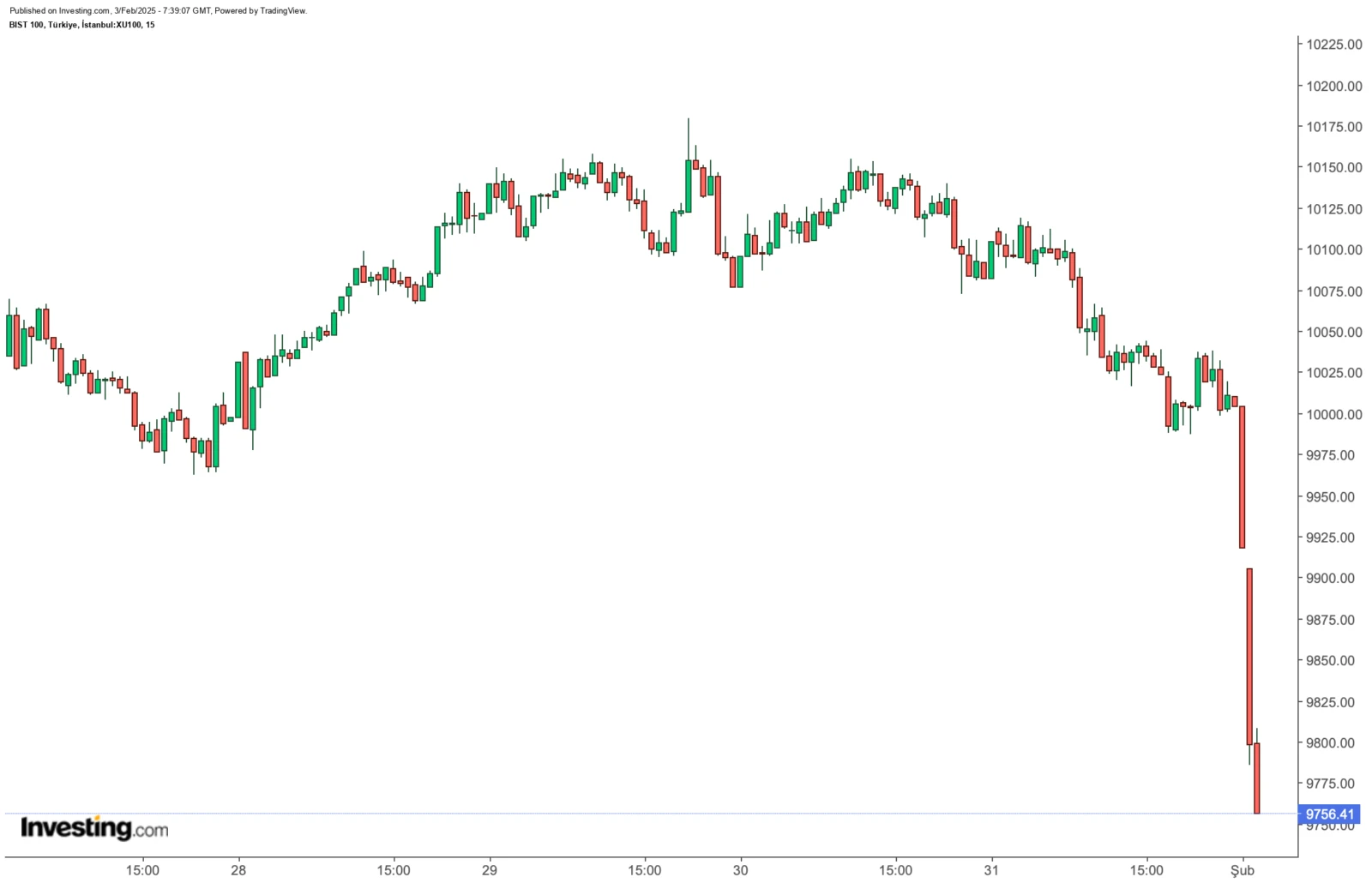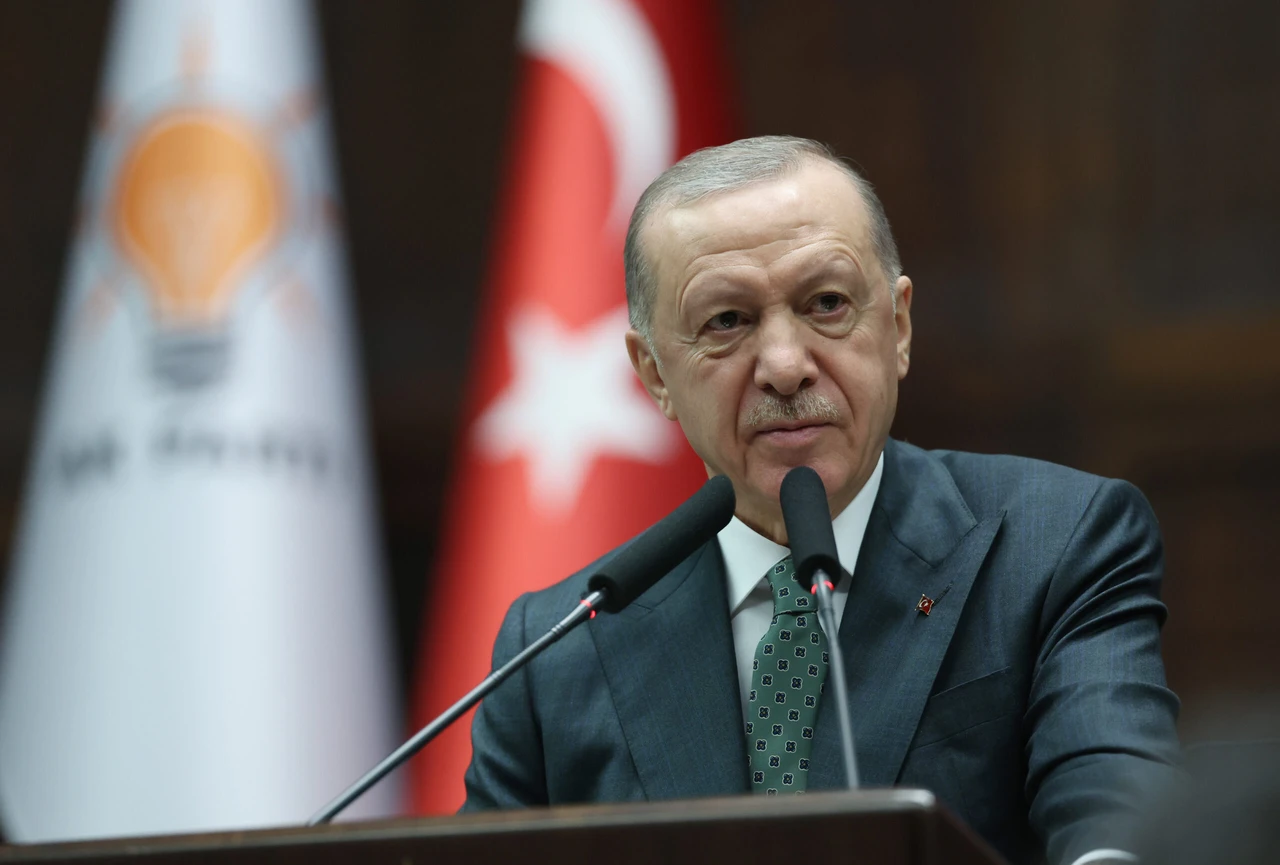Türkiye’s stock exchange drops over 2% with disappointing inflation figures, Trump tariffs
 An electronic display shows BIST 100, Türkiye's benchmark stock index declining. (Adobe Stock Photo)
An electronic display shows BIST 100, Türkiye's benchmark stock index declining. (Adobe Stock Photo)
BIST 100, Türkiye’s benchmark stock index, opened Monday at 9,918.35 points, dropping 0.86% or 86.04 points from the previous close amid market turmoil following U.S. President Donald Trump’s tariff decisions and higher-than-expected Turkish inflation figures.
Borsa Istanbul’s BIST 100 index closed last week at 10,004.38 points, gaining 0.77%, with a daily trading volume of 94 billion liras ($2.62 billion). By 8:20 a.m. GMT, the index had fallen by as much as 2.05%, according to investing.com.

The decline in Borsa Istanbul is primarily concentrated in BIST 30 stocks, while the BIST 100-excluded index remains around a 1.5% decline in early trading.
All sectors slipped, with banks leading the losses
Sharp drops are also seen across sectors, with banks leading the losses, falling more than 4%, followed by holding and textile indices. In the first hour of trading, no sector index remained in positive territory, while tourism and trade sectors recorded the smallest declines.
On the other hand, the U.S. dollar/Turkish lira exchange rate slightly increased to 35.96 by 0.76%, while the Euro stood at ₺36.85 and a British pound traded for ₺44.30. Brent crude oil was selling for around $76.20 per barrel, while the price of an ounce of gold was $2,786.50.
Türkiye’s inflation continued its downward trend in the first month of 2025, declining to 42.12% on an annual basis while increasing by 5.03% compared to the previous month. However, these figures exceeded market expectations, as the Central Bank of the Republic of Türkiye’s (CBRT) Survey of Market Participants in January had indicated that market forecasts centered around a 4.07% monthly increase.
Global markets are facing heightened uncertainty after U.S. President Donald Trump enacted new tariff measures, imposing a 25% duty on imports from Mexico and Canada and a 10% tariff on Chinese goods, set to take effect on Tuesday.
The move has intensified trade tensions, fueling fears of inflationary pressure and economic instability.



